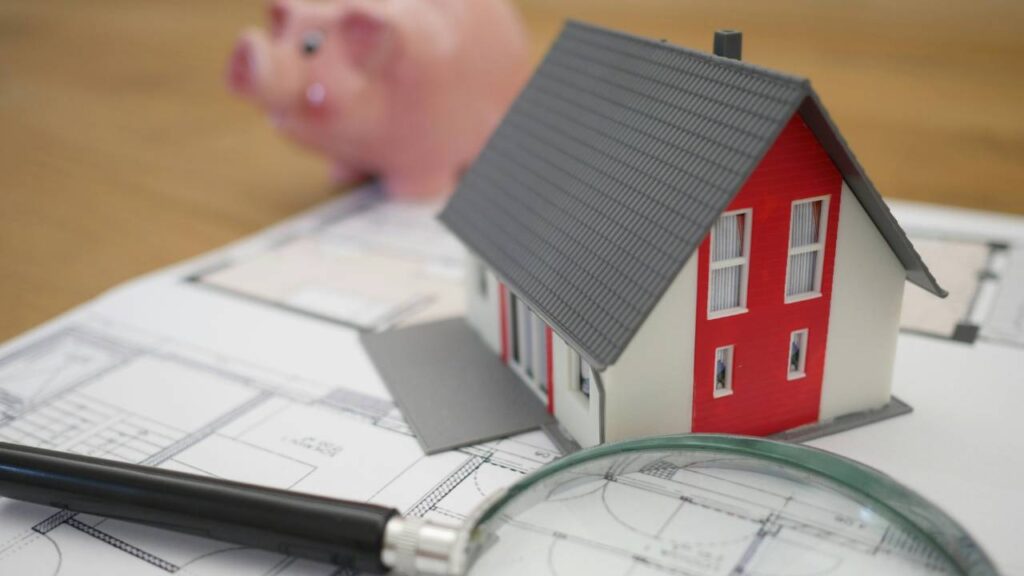
Home improvement projects – such as installing a new kitchen – can be both exciting and daunting. In Ireland, you have access to a range of grants that can make renovating your home more affordable. Whether you’re looking to upgrade your insulation, install renewable energy systems, or adapt your home to suit mobility needs, financial assistance is often available. These grants typically aim to increase energy efficiency, support sustainable living, and ensure homes are comfortable and safe.
To benefit from these grants, you usually have to meet certain criteria. This often involves the age of your property, the type of improvements you’re planning, and your own personal circumstances. For instance, energy efficiency grants generally require a home energy audit before work begins, while mobility aid grants might be contingent on a medical assessment.
Navigating the various grants requires some research, but it can significantly reduce the cost of your home improvements. The Sustainable Energy Authority of Ireland (SEAI) offers several grants for insulation, heating controls, solar panels, and more. Other schemes like the Housing Aid for Older People Grant and the Mobility Aids Grant Scheme support older adults and people with disabilities in making necessary home modifications. It’s worth investigating these grants to see how they can help with your specific home improvement goals.
Understanding Home Improvement Grants in Ireland
In Ireland, home improvement grants are designed to support you, the homeowner or landlord, in upgrading your property’s energy efficiency. These grants can help reduce energy bills, increase comfort, and contribute to a greener environment.
The Role of SEAI
The Sustainable Energy Authority of Ireland (SEAI) is pivotal in administering home improvement grants. Their aim is to facilitate the transformation to a more energy-efficient and sustainable energy structure within Irish homes. Grants provided by SEAI typically cover a range of energy upgrades like insulation, solar panels, and heating control systems.
Eligibility Criteria for Homeowners and Landlords
It’s essential that you meet specific eligibility criteria to apply for these grants. The criteria widely vary, but here are some general points to keep in mind:
- You must own a property that was built and occupied before a certain year.
- You must not have previously received a grant for the same work.
- The grant may only apply to certain types of properties.
Both homeowners and landlords can apply, but separate conditions may apply to each.
Energy Efficiency and BER Assessments
Improving energy efficiency is at the heart of these grant schemes. You will likely need to obtain a BER assessment before and after the work to measure the improvement in energy performance. The BER rating is pivotal as it indicates the energy performance of a home, scaling from A (most efficient) to G (least efficient). These upgrades not only help reduce energy consumption but also can increase your property’s value.
Remember that the process to apply involves completing specific steps, which include picking a registered contractor and potentially pre-work and post-work BER assessments. To ensure a smoother application process, keep your paperwork in order and adhere to the set timelines.
Types of Grants Available

There are several grants available in Ireland to help make your home more energy-efficient and comfortable. Whether you’re looking to upgrade your insulation, invest in renewable energy, or improve your heating systems, there’s financial support to help you on your journey.
Insulation and Heat Pump Systems
Insulation: If you’re thinking about insulating your home, you could be eligible for a Home Energy Efficiency Grant. This can cover part of the costs for wall, roof, and floor insulation, which are crucial for maintaining a warm and energy-efficient home.
- Grant Amount: Varies based on the area and type of insulation.
- Energy-Saving: Optimal insulation can significantly reduce your heating bills.
Heat Pump Systems: Switching to a heat pump system can provide you with a more energy-efficient way to heat your home. The grant can subsidise the installation of air-to-water, water-to-water, or geothermal heat pump systems.
- Energy Efficient: Heat pumps are known for their efficiency, providing heating and hot water using less energy.
Renewable Energy Incentives
Solar PV: Harness the power of the sun with a solar photovoltaic (PV) system to generate your own electricity. The Solar Electricity Grant supports the installation of solar panels on your property.
- Grant Amount: Determined by the size and capacity of the installed system.
- Solar Electricity Grant: Reduce your electricity bills and your carbon footprint.
Solar Thermal Solutions: Another great option is solar thermal, which uses solar energy to heat water in your home. Grants can reduce the initial cost and make the switch to solar thermal a savvy investment.
- Renewable Energy: Utilise a clean, limitless energy source to provide your hot water needs.
Heating Controls and System Upgrades
Upgrading your heating controls can allow you to manage your home’s temperature and hot water settings more efficiently, reducing energy waste.
- Grants: Available for the installation of advanced heating controls.
System upgrades can involve replacing an old boiler with a more efficient model or integrating a more responsive heating system to lower energy use.
- Energy-Saving: Modern heating systems can lead to substantial energy savings over time.
Applying for Grants

Before you begin the application process for your home improvement project, whether it’s remodelling your bathroom or something more complicated, it’s important to understand the necessary steps, what documentation you will need, and the significance of selecting a registered contractor for your project. These grants help manage the financial aspect of your renovations and ensure a technical assessment of the work to be done.
Steps to Apply
To apply for a home improvement grant, you should follow these steps:
- Determine your eligibility for the potential grants.
- Visit the relevant government website or local authority to access the application form.
- Read the instructions carefully and fill out the form with accurate information about your project.
Required Documentation
When applying for a grant, gather the following documents:
- Proof of home ownership
- Quotations from registered contractors
- Evidence of income (tax returns, payslips)
- A detailed description of the project management plan
Keep copies of all submitted documents for your records.
Choosing a Registered Contractor
It’s vital you choose a contractor registered with the Sustainable Energy Authority of Ireland (SEAI) or equivalent bodies for specific grants. Consider the following:
- Confirm their registration number and validity.
- Discuss the scope of the technical assessment and renovations.
- Obtain a written quotation for their services.
Selecting a properly registered contractor is essential for grant approval and for the quality assurance of your home improvement project.
Financial Considerations
When exploring home improvement grants in Ireland, you’ll want to pay close attention to how much financial support you can receive, the full costs you’ll be responsible for, and any additional incentives available to you.
Determining Grant Amounts
To accurately gauge the grant amount you may receive, check the specific eligibility criteria for each grant. The Better Energy Homes scheme, for instance, offers a variety of grants for insulation and heating system upgrades, with amounts dependent on the improvement type. For instance:
- Roof Insulation: Up to €600
- External Wall Insulation: Up to €6,000
- Solar Thermal Systems: Up to €1,200
Your social welfare payments can also play a role; qualifying for the Fuel Allowance or Family Income Support may increase the grant amount.
Understanding Total Costs
Your total cost involves more than just the price of upgrades; consider the subsequent energy bill savings. For example:
- Initial Cost: The upfront expense for a heat pump may vary widely.
- Energy Bills: Installing a heat pump can significantly reduce your utility bills over time.
Here is an illustrative breakdown of your potential costs and savings over a five-year period:
| Year | Initial Costs | Estimated Annual Savings |
| 1 | €7,000 | |
| 2 | €0 | €500 |
| 3 | €0 | €500 |
| 4 | €0 | €500 |
| 5 | €0 | €500 |
The upfront cost is partially offset by energy savings and grant support, reducing the financial burden on you.
Additional Bonuses and Benefits
Cash bonuses and benefits may be available, such as extra aid for completing multiple upgrades. For example:
- Bonus: After the third upgrade, a €300 bonus may apply.
- Additional Benefits: Lower utility bills and improved home comfort are long-term advantages that stem from making energy-efficient improvements.
Always inquire about these potential benefits to maximise the value you get from the grant schemes in Ireland.
Additional Support and Information

When undertaking home improvements in Ireland, it’s important to know that there’s a range of additional support and advisory services to guide you through your journey. These resources can help you navigate the often complex process smoothly.
Advisory Services for Homeowners
Through the Sustainable Energy Authority of Ireland (SEAI), you have access to a wealth of information tailored for homeowners. For instance, the SEAI’s One Stop Shop simplifies the process of making your home more energy-efficient. Here, you can find:
- Home Energy Assessment: Understand the energy efficiency of your home and identify improvements with a professional assessment.
- Guidance on the National Home Energy Upgrade Scheme: Discover how to finance home improvements and learn about available grants.
The One Stop Shop is designed to support you, especially if you’re upgrading an older home, ensuring the process is more accessible and less daunting.
Navigating Complex Projects
Improving older homes may require specialised knowledge. It’s worth considering hiring a conservation architect, who specialises in the renovation of older structures while preserving their historical value. They’ll ensure that home improvements meet the necessary conservation requirements.
For complex projects, these steps are advised:
- Consult a Conservation Architect: Align your home’s historical integrity with modern energy efficiency standards.
- Leverage Expert Advice: Use the guidance and support offered by the SEAI and their One Stop Shop service to understand the full scope and benefits of the National Home Energy Upgrade Scheme.
Turning to these resources and professionals can help you ensure your home improvement project respects the integrity of your house while upgrading its energy efficiency. This is particularly important if you’re planning to embark on a complicated project, like adding an extension to your home.